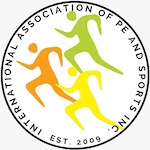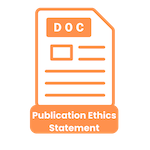Pengaruh Group Investigation Models Terhadap Peningkatan Kompetensi Mahasiswa
Abstract
Kebijakan pemerintah tentang program Merdeka Belajar perlu mendapat dukungan optimal dari setiap pihak yang terkait. Dosen sebagai salah satu pihak yang secara langsung berinteraksi dalam proses pembelajaran. Program tersebut menuntut mahasiswa untuk mandiri dalam memperoleh segala informasi dan pengetahuan yang mereka butuhkan. Dalam mendukung program tersebut, penelitian ini bermaksud untuk melihat bagaimana pengaruh Group Investigation Models terhadap peningkatan kompetensi mahasiswa. Berdasarkan sistematika proses pembelajaranya, model tersebut dapat sejalan dalam mendukung program pemerintah. Melalui one group pretest-posttest design dan sampel yang berjumlah 64 orang, hasil penelitian ini menunjukkan bahwa terdapat pengaruh yang signifikan terhadap kompetensi mahasiswa.
References
Clemente, F., Rocha, R. F., & Korgaokar, A. (2012). Teaching physical education: The usefulness of the teaching games for understanding and the constraints-led approach. Journal of Physical Education and Sport, 12(4), 417–426. https://doi.org/10.7752/jpes.2012.04062
Ghazali, A. (2022). Implementation of the Group Investigation Cooperative Learning Model with Device Media in Indonesian Language Learning to Increase Student Activity in Class XI Science 4 State High School 1 Wajo, 4(2), 375–389.
Haryono, H. E. (2020). The Influence of Cooperative Learning Model Type Group Investigation Toward Results of Learning Science Materials of Students. Jurnal Ilmiah Pendidikan Fisika, 4(1), 1. https://doi.org/10.20527/jipf.v4i1.1772
Hermanto, A., Kusnanto, G., & Fadilah, N. (2021). Pengembangan Model Sistem Informasi Dalam Kolaborasi Antar Perguruan Tinggi Untuk Mendukung Program MBKM. Proceeding KONIK (Konferensi Nasional Ilmu Komputer), 5, 20–27.
Krishnapatria, K. (2021). Merdeka Belajar-Kampus Merdeka (Mbkm) Curriculum in English Studies Program: Challenges and Opportunities. Angewandte Chemie International Edition, 6(11), 951–952., 4(June), 5–48. https://doi.org/10.35706/eltinfc.v4i1.5276
Mitchell, M. G., Montgomery, H., Holder, M., & Stuart, D. (2008). Group investigation as a cooperative learning strategy: An integrated analysis of the literature. Alberta Journal of Educational Research, 54(4), 388–395.
Nasution, E. S., & Derlina, N. B. (2017). … of Learning Devices through Cooperative Learning Model Type of Group Investigation Based on Batak Culture to Improve Physics’ Problem Solving Skills and …. Development, (20), 13–20. Retrieved from https://core.ac.uk/download/pdf/234640648.pdf
Nst, I. W., Nasution, N. H., Info, A., & Outcomes, S. L. (2022). Comparison Of Student Learning Outcomes Using Cooperative Learning Model Snowball Throwing With Group Investigation On The Main Material Of Plant Tissue, 11(1), 70–74.
Saraswati, A. M., & Saefudin, A. A. (2017). Penerapan Model Pembelajaran Group Investigation Dalam Pembelajaran Matematika Pada Materi Himpunan. AKSIOMA: Jurnal Program Studi Pendidikan Matematika, 6(1), 89. https://doi.org/10.24127/ajpm.v6i1.869
Tegeh, I. M., Santyasa, I. W., Agustini, K., & Santyadiputra, G. S. (2022). Group Investigation Flipped Learning in Achieving of Students ’ Critical and Creative Thinking Viewed from Their Cognitive Engagement in Learning Physics, 6(2), 350–362.
The Implementation of a Combination of Group Investigation, Numbered Heads Together and Scramble to Improve Student Learning Result on Theme 7 Events of Life Contents for Social Science Fifth-Grade SDN Mantuil 4 Banjarmasin. (2022). International Journal of Social Science and Human Research, 05(06), 2204–2209. https://doi.org/10.47191/ijsshr/v5-i6-26
Yuliandini, N., Hamdu, G., & Respati, R. (2019). Pengembangan Soal Tes Berbasis Higher Order Thinking Skill (HOTS) Taksonomi Bloom Revisi di Sekolah Dasar. PEDADIDAKTIKA: Jurnal Ilmiah Pendidikan Guru Sekolah Dasar, 6(1), 37–46.
Zainuddin, Z., Fitriani, F., & Misbah, M. (2017). Development of a senior high school on dynamic fluid learning material in the setting of group investigation type of cooperative learning. In Prosiding Seminar Nasional Fisika (SNF).Vol. 1., (November), 109–116.
Zamrodah, Y. (2016). 済無No Title No Title No Title, 15(2), 1–23.

This work is licensed under a Creative Commons Attribution 4.0 International License.


















